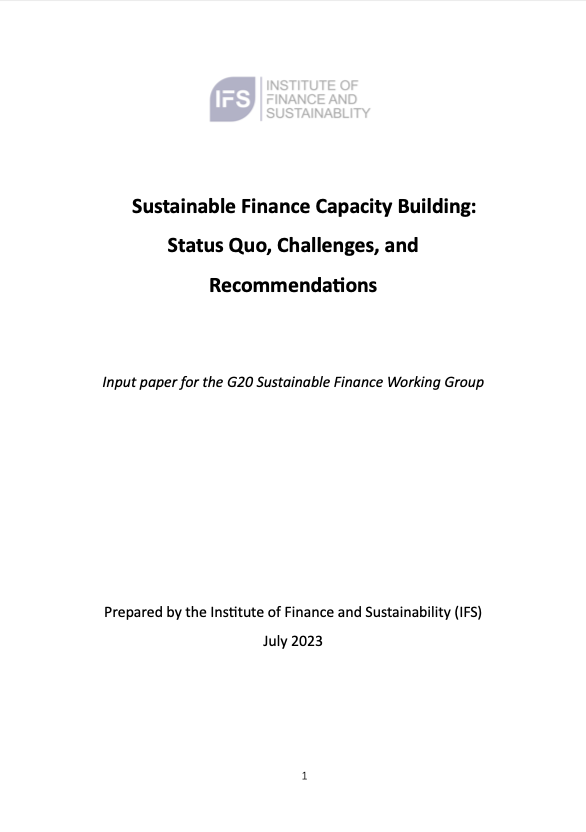Sustainable Finance Capacity Building: Status Quo, Challenges, and Recommendations

Key Message
The lack of capacity to develop and implement sustainable finance frameworks and solutions, particularly in Emerging Markets and Developing Economies (EMDEs), is a major obstacle to mobilizing the necessary multi-trillion-dollar investment for SDGs and climate actions. Although many organizations have recognized the need for and devoted resources to capacity building and technical assistance, there are four barriers hindering the effective delivery of sustainable investment capacity building services:
1) Lack of consistent financial support: there are many different types of capacity building service providers, including those hosted by financial firms, governmental and semi-governmental agencies, financial sector industrial associations, research entities, international organizations, NGOs, educational entities and so on. Many of them are providing such services for free as a public goods, however many do not have access to consistent financial support to develop and deliver quality services.
2) Insufficient coverage of topics and audiences: many of existing services focused on a narrow range of topics, and have not delivered the needed impact that requires integration of knowledges across spectrums of the sustainable finance field; in the meantime, most of them cover a small segment of the potential audience or geographical regions, therefore contents developed are not cost effectively utilized;
3) Lack of coordination: most capacity building programs are developed in silo without coordination with other content providers, resulting in duplication of efforts;
4) Lack of innovation in effective delivery: many contents developed are presented in format that may not be suitable for educational purposes and with limited scalability.
To greatly improve the effectiveness of capacity building programs and expand their reach to a significantly larger target audience, we believe that the following efforts are needed: 1) allocation of greater financial resources from relevant institutions, including but not limited to MDBs, governments and philanthropies to sustainable finance capacity building; 2) creation of international capacity building alliances/ networks which could improve the efficiency and enhance coordination in utilising and distributing knowledge that are developed by different content providers; 3) The provision of tailored capacity building services and technical assistance programs for EMDEs that lack the basic elements of sustainable finance.



